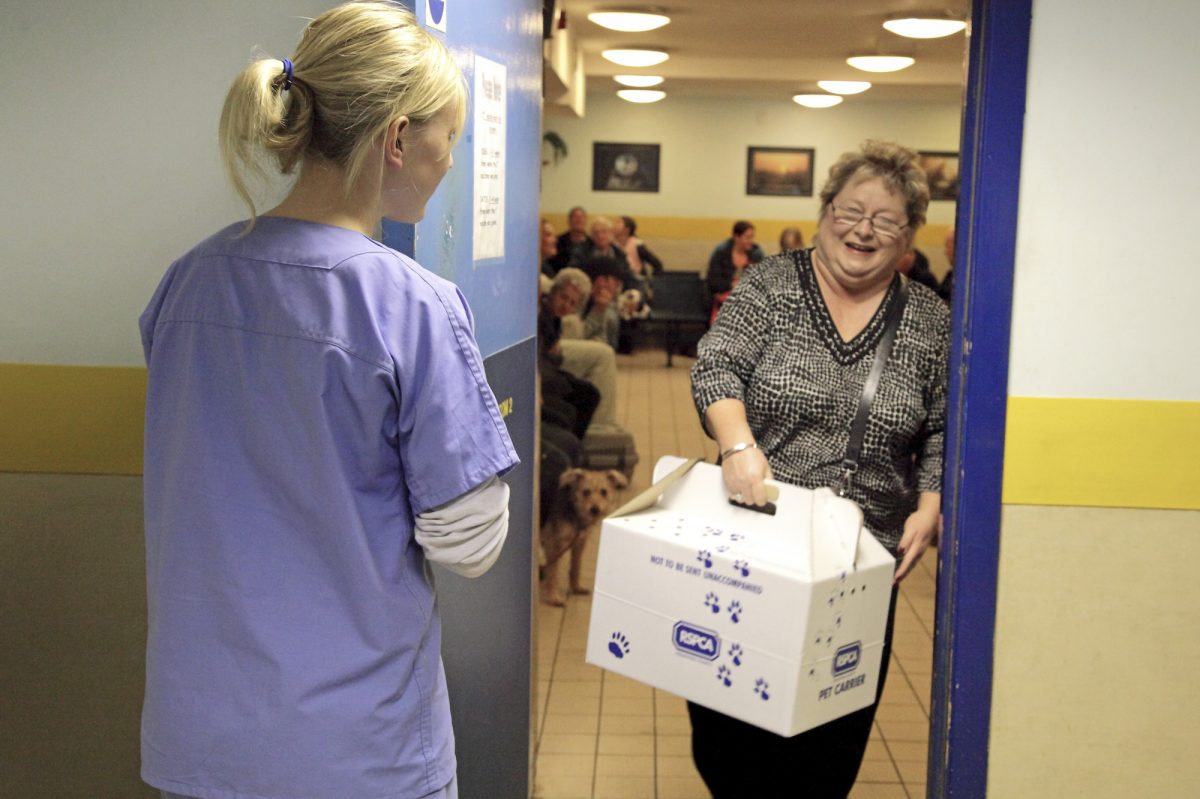How making provision for veterinary bills is the essential consideration for a pet owner
Unfortunately, there is no NHS for pets in the UK. The closest thing we have is the PDSA and Blue Cross but these excellent charities have specific criteria, usually means testing, which you must meet before you can register. That means the majority of pet owners will use a private vets for all their pets health needs. It is the single most expensive part of owning a pet and something we actively encourage people to think hard about before taking the plunge and welcoming a new member of the family. There are still some who think ‘it won’t happen, my dogs young.’ Or ‘My cat is an indoor mog’ and even the incredulous ‘You can get insurance for rabbits?’ Nationwide, the average cost of a consultation, ie just having your pet examined, costs £50. That’s before any treatment, any operation or drugs.
As a branch, the most common enquiry we receive is, do we know a inexpensive vet? The simple answer to this is no. Vets train for years, have huge overheads, equipment to buy as well as staff to pay. UK veterinary surgeons and practicing nurses must be registered with the Royal College of Veterinary Surgeons. However, the prices a particular practice charges for their business is unregulated. Therefore, one vet may charge £100 for a cat spay, another may be £150 and yet another £75! These vary from location to location and obviously there’s even more costs for out of hours appointments/emergencies. Doing your research is vital. Asking for the price of routine or annual procedures can give you an idea of the price difference. It’s important to take into account location too. One vet may seen to offer low prices but isn’t local. If your pet is a bad traveller, the stress this can put them under is so detrimental that a shorter journey or a walk to your vet may suit you more.
We are also asked if we can recommend a veterinary practice. Again, the answer to this is a simple, no we can’t. The RSPCA does not regulate vets, we advise people to ask friends or relatives and to look at feedback/recommendations. Your relationship with your vet is very personal. We could rave about one veterinary practice but on visiting you find it does not gel with you or your pet.
One of the easiest ways to make veterinary fees affordable is pet insurance. Comparison websites are a good tool to utilise when looking into what’s best for you. There is still usually an initial cost with most insurance policies you have an excess to pay per condition. Insurance doesn’t cover routine things like annual vaccinations, worm and flea treatments and depending on your pets age dental procedures! What policies are great for is providing a financial safety net should your pet become very ill or injured. It is not unusual for operations to run into thousands of pounds. With advances in veterinary medicine, most surgeries a human can have, a pet can have too. The difference is, as we mentioned earlier, we have the NHS, your pet relies on you!
It is the individual practices discretion whether to offer ‘payment plans’ or not. It’s worth asking if the practice offers a health plan which, unlike insurance, does cover the monthly and yearly costs like vaccinations. You can save on prescriptions too. Some chronic illnesses require ongoing medication and you can ask the vet to give you the prescription rather than them dispense the treatment. It doing this, it is vital you obtain the medicine from a reputable source to avoid falling victim to unscrupulous companies or individuals online.
An experienced vet once told us ‘pets are a luxury, not a necessity’ and this is very true. We choose to take on animals and being prepared with insurance cover in case of ‘ the worst case scenario’ eg job loss/complicated surgery means you will not have to make a heart wrenching decision because the funds are not there. It’s impossible to predict what the future holds but we can prepare the best we can. All pets need love and food, but those 2 things alone simply are not enough. Having a pet means you, not anyone else, are responsible for all their needs and right at the top of that list is veterinary care for all their life.

